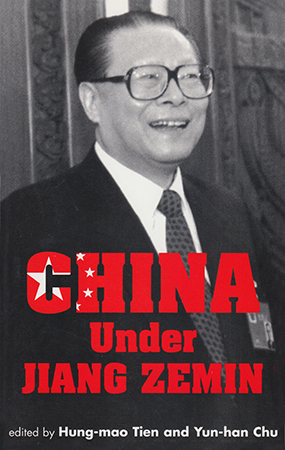
- 2000/279 pages
China Under Jiang Zemin
Proceeding from a detailed portrait of the political landscape at the opening of the Jiang Zemin era, the authors provide rich detail of the various personalities and policy platforms that have been contending for control, as well as the successful strategies used by Jiang to consolidate his position. Subsequent chapters address the increasingly crucial role played by the People’s Liberation Army in various policy domains, the all important issues of economic reform and its consequences for social stability, and the implications of the leadership transition for China’s interactions with the outside world, and especially with Taiwan. The concluding section of the book analyzes the evolving pattern of center-local relations and explores the forces that may hold the seeds of a genuine political reform.







